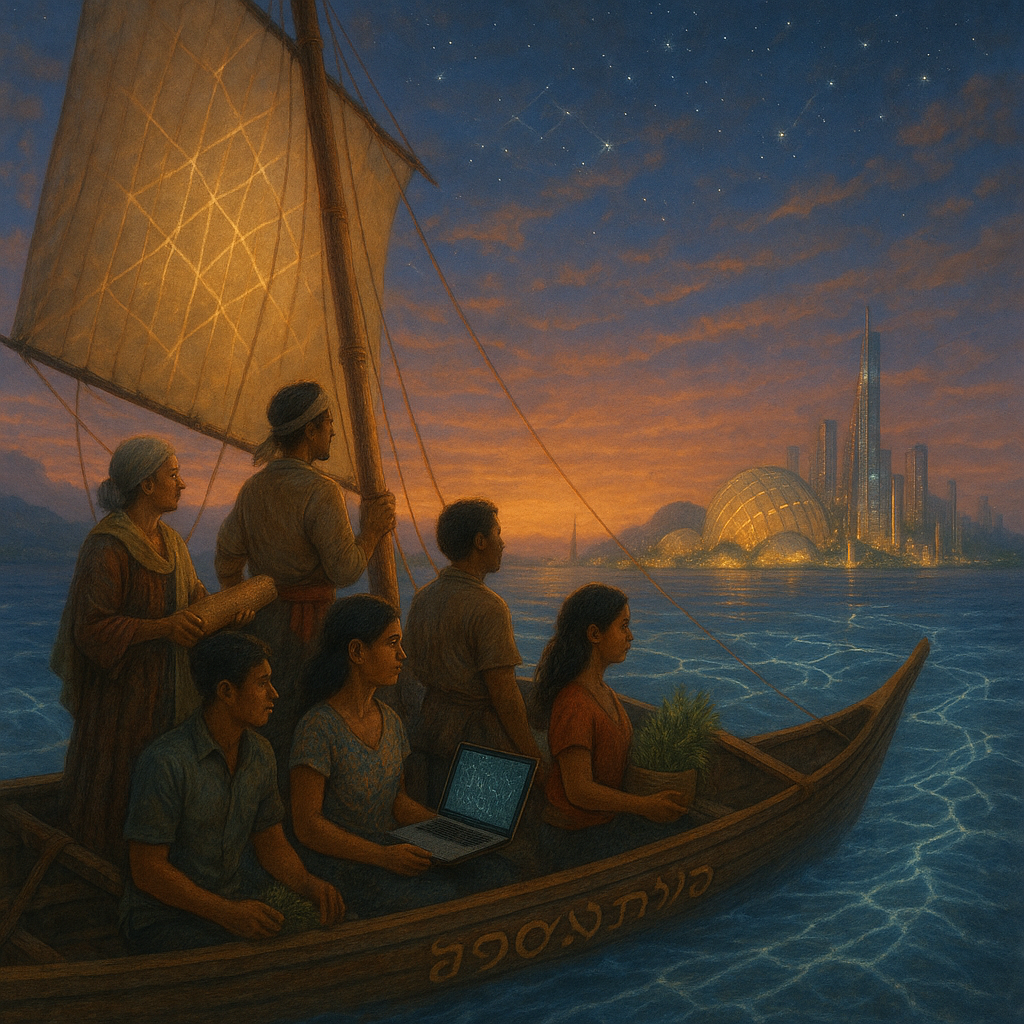
The Living Rights Network
Creator Information
Name:
Role:
Social Media/Website:

🌍 World Summary
Vision Statement
In 2035, automation has fractured old systems. We refuse to rebuild on broken foundations. Communities form Living Rights Networks—local, Indigenous-guided systems that treat AI not as a tool for control, but as scaffolding for care. In place of economies that protected corporations over living beings, we build public infrastructure for healing and repair—centering the displaced, the racialized, the forgotten. It’s a spiral of repair—where no one is left behind.
🔬 Technology
Community-Governed AI Mesh Systems
Community-Governed AI Mesh Systems are decentralized networks helping communities counter mental health crises, climate disruption, and cultural loss. In 2035, intelligence is becoming relational—land-rooted, locally governed, and centered on care that leaves no one behind.
What kind of AI exists in your world?
In 2035, AI remains a powerful tool—unevenly distributed and often controlled by extractive systems. In response, communities shaped by displacement, colonization, and exclusion are building decentralized, care-centered mesh networks. These relational systems are trained on locally governed data, stewarded by Indigenous and racialized trust circles, and guided by protocols rooted in consent, dignity, and interdependence—not control.
New or Reformed Institution
The Living Rights Network is a decentralized institutional framework rooted in the lived experiences of displaced, racialized, and excluded communities. It supports co-creation of local care infrastructures, weaving mental health, ecological repair, and cultural regeneration into policy, open protocols, and trust-circle governance—informing AI strategies rooted in dignity, equity, and land-based sovereignty.
Transformed Sector
By 2035, mental health is increasingly seen as foundational to a healthy society—like physical health, not separate from it. The past decade proved that emotional coherence and trauma-informed care are essential to governance, education, and migration systems. Community-led supports, AI-guided tuning tools, and cultural healing practices have reframed mental health as shared infrastructure, not a personal crisis to carry alone.
A Major Crisis Overcome
The world faced moral injury, climate grief, and rising populism—worsened by centralized AI that amplified disinformation and deepened emotional fragmentation. Mental health was siloed, not systemic. The turning point came as displaced and racialized communities began resisting extractive AI and reframing care as shared infrastructure. Decentralized, trauma-informed networks now seed coherence, resilience, and a new ethics of intelligence.